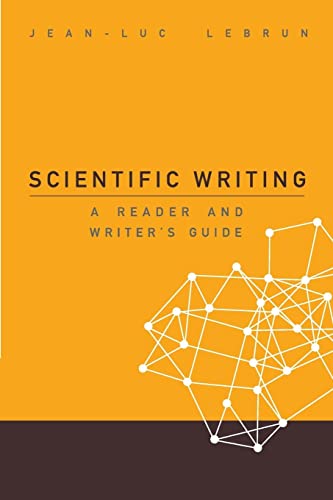Synopsis
Given that scientific material can be hard to comprehend, sustained attention and memory retention become major reader challenges. Scientific writers must not only present their science, but also work hard to generate and sustain the interest of readers. Attention-getters, sentence progression, expectation-setting, and ''memory offloaders'' are essential devices to keep readers and reviewers engaged. The writer needs to have a clear understanding of the role played by each part of a paper, from its eye-catching title to its eye-opening conclusion. This book walks through the main parts of a paper; that is, those parts which create the critical first impression. The unique approach in this book is its focus on the reader rather than the writer. Senior scientists who supervise staff and postgraduates can use the book to review drafts and to help with the writing as well as the science. Young researchers can find solid guidelines that reduce the confusion all new writers face. Published scientists can finally move from what feels right to what is right, identifying mistakes they thought were acceptable, and fully appreciating their responsibility: to guide the reader along carefully laid-out reading tracks.
Revue de presse
Scientific Writing is a fresh look at the scientific article for writers whose success might depend on their readers. The author illustrates his points with ample short stories, examples, quizzes, and diagrams ... This book is a good resource for writers, both beginning and experienced, and for teachers of scientific writing and editing. The methods for evaluating the structure, movement, and continuity of a paper from the perspective of the reader are valuable for writers, peer reviewers, and editors. And last but not least, this book might help editors avoid unintentionally creating obstacles for readers through common editing practices.
--Science Editor
My wish is that this book becomes the bedside book of all serious scientists striving to express themselves clearly in order to communicate their ideas efficiently. --Jean-Pierre Chevallet, Associate Professor, Grenoble University, France
Lebrun couples his experiences and insights from his work as a writer and filmmaker with his wisdom of people to show how to write for others ... That's why this book, and Lebrun's wisdom, is so essential, so correct, and so badly needed. --Don Norman, Professor, Northwestern University, USA & Cofounder, Nielsen Norman Group, USA
Les informations fournies dans la section « A propos du livre » peuvent faire référence à une autre édition de ce titre.
